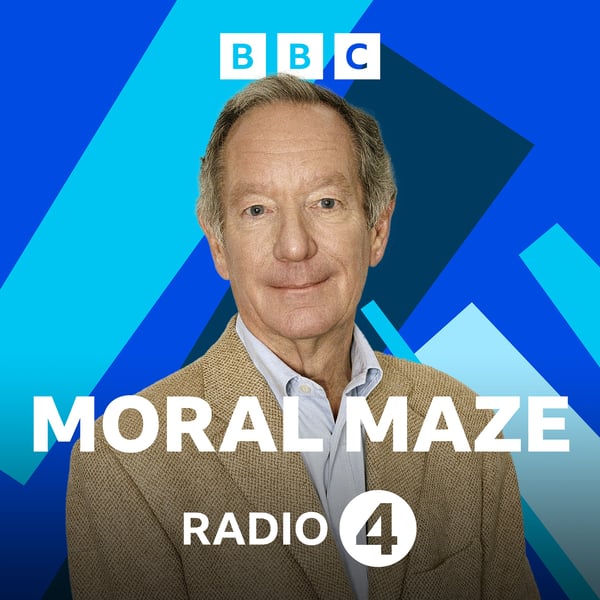A world without Down's syndrome?
Moral Maze
BBC
4.5 • 609 Ratings
🗓️ 6 October 2016
⏱️ 43 minutes
🧾️ Download transcript
Summary
Do we want to live in a world without Down's syndrome? This isn't just a theoretical question. It could soon become a reality. A new technique called non-invasive prenatal testing (NIPT), detects Down's syndrome with 99% accuracy and it should soon be available on the NHS. It's already being used in Iceland where 100% of Down's syndrome pregnancies are terminated. The Danish health system declared the objective of being Down's-free and introduced the test in 2006. The termination rate there today is 98%. In Britain the termination rate for positive tests is 90 per cent and around 775 babies with Down's syndrome are born every year in England and Wales. A lot of effort has been made to increase people's knowledge of the condition which has a wide range of symptoms. Many children with it will grow in to adulthood and lead very integrated lives, but some will never walk or talk, or may have severe heart defects, glaucoma, deafness and a risk of early dementia. Would it be a sign of human progress if we reduced the number of people born with Down's syndrome to zero? Many people would agree that reducing suffering is an unequivocal moral good, yet when Richard Dawkins told a woman on Twitter that if she was carrying a child with Down's she should "abort it and try again" and "It would be immoral to bring it into the world if you have a choice" there was an outcry. NIPT could soon be available for other single gene disorders such as cystic fibrosis and we've done our best to eradicate many other disabling conditions, so why not make the most of what technology can offer? Or is this a kind of nightmare eugenicist council of perfection - a triumph of cold hearted utilitarianism over our moral duty to embrace difference and care for our fellow man? Chaired by Michael Buerk with Anne McElvoy, Claire Fox, Giles Fraser and Melanie Phillips. Witnesses are Sally Phillips, Jane Fisher, Prof Dominic Wilkinson and Simone Aspis.
Transcript
Click on a timestamp to play from that location
| 0:00.0 | You're listening to a program from BBC Radio 4. |
| 0:03.7 | Good evening. By any standard, the new test for Down syndrome is a medical advance. |
| 0:07.9 | It's a simple blood test, taken around the 10th week of pregnancy, that's both accurate and reliable, |
| 0:13.2 | so much better than the old procedures which were either fallible or so invasive |
| 0:16.7 | as to carry a small but significant risk of destroying the fetus they were testing. |
| 0:20.9 | And advance then, certainly. But is it, in its widest sense, progress? |
| 0:25.4 | Downs is an emotionally charged and ethically complicated condition. |
| 0:28.9 | The new test makes it more so. |
| 0:30.8 | To those unaffected, it seems a misfortune, |
| 0:33.8 | though the physical and mental impairment it brings varies widely. |
| 0:37.1 | Those with Downs are less intelligent, more prone to all sorts of debilitating conditions, |
| 0:42.0 | and likely to be dependent on others throughout their shorter lives. |
| 0:45.7 | It's understandable that many see it as tragic for both the individual and the family |
| 0:49.4 | which has to cope, something to be avoided. |
| 0:52.4 | Yet some of those with Downs's children or relatives see it differently |
| 0:55.7 | and say that beyond the impairments and health problems, they have much to offer that an overly |
| 1:00.1 | pragmatic society bent on erasing human imperfections fails to see. Nonetheless, most women who find |
| 1:06.9 | their unborn child is suffering from Downs have it aborted. The easier, earlier, more reliable diagnosis reinforces that trend. |
| 1:14.6 | Indeed, some countries where the test is already in operation, |
| 1:17.8 | have an explicit policy of eradicating downs altogether. |
| 1:22.0 | It's a question that goes to the heart of what it is to be human, |
| 1:25.1 | whether there is a dividing line between the alleviation |
... |
Please login to see the full transcript.
Disclaimer: The podcast and artwork embedded on this page are from BBC, and are the property of its owner and not affiliated with or endorsed by Tapesearch.
Generated transcripts are the property of BBC and are distributed freely under the Fair Use doctrine. Transcripts generated by Tapesearch are not guaranteed to be accurate.
Copyright © Tapesearch 2025.

